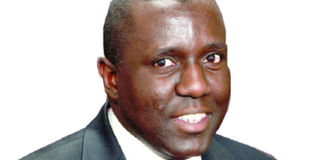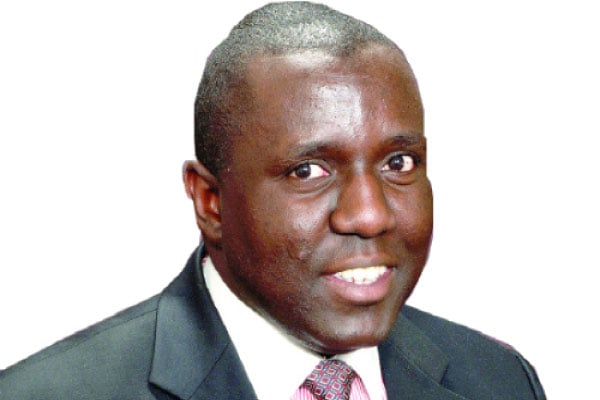Prime
The “National Coffee Project” must negotiate new trade agreements

In 1989-1990, Uganda made a coffee windfall. Close to $1 billion in export earnings. Government excited by this windfall occasioned by frost in Brazil, levied a “coffee stabilization” tax whose purpose was to shore up farmers when prices were not favourable.
This windfall did not last long and the following two decades were marked by a precipitous collapse of nearly all cooperative unions, East Mengo, West Mengo, Buddu Growers, Banyankore Kweterana, Nyakatonzi and Busoga.
The once giant Ministry of Cooperatives and Marketing headed by economists – Yonasani Kanyomozi (1981-1985), John Sebaana Kizito (1985-1989) was folded into a department in the Ministry of Commerce which saw its own share of misfortunes as hastily implemented liberalization reforms collapsed national enterprises.
Since this period, Uganda’s capital journey has taken a peculiar path, foreign capital fused with domestic agents [Ugandan businessmen in association with a select political class].
The end result are conspicuous mansions that dot the countryside, gated farms, and Mcmansions competing for space in the Kampala metro-area where 70 percent of GDP resides.
In 2010, the coffee sub-sector in its feeble state still directly supported five million Ugandans in the 88 coffee districts as their major source of income.
Coffee is a durable land use, it does not have the prohibitive land use characteristics of other activities mono crops exhibit like oil palm, cotton or large scale livestock rearing.
Farmers can grow coffee and food at the same time in intercropped gardens if they choose to. Colonialists favored this approach as it ensured coffee shambas had enough labour because the farmers actually grew food in the coffee gardens.
The problem Uganda coffee finds itself in; is it has become a victim of a temporary success that has attracted the tax man, speculators and vested interests. Sometime in the last five years someone came up with a novel idea to tax fish maw.
A tax was imposed on fish maw, a lucrative business; fish maw is favored as a tissue repair product and in plastic surgery to moderate severe burns.
Simultaneously the waters of Lake Victoria were inundated with trawlers and in November 2020-January 2021, the waters of the lake floated with dead Nile Perch. The Fisheries Department offered a feeble excuse that the “Nile Perch” had contracted a strange disease. Since that time, Nile Perch introduced by Milton Obote’s first government in 1967-1970, the predator of the lake has disappeared.
Tilapia stocks have somewhat recovered but the price of fish is out of reach of most fishing communities in Lake Victoria.
In the coffee debate, understanding the strengths and weaknesses of our national export may suffer the same problem. Are we externalizing a national resource by favouring one processor? Are we attacking the robusta problem, producing cheaply for world markets leaving our farmers in crushing poverty? The current situation where the coffee industry is in the firm grip of foreign players who have bought out locals has been the answer to the government’s failure to mobilise “crop-finance”. Infact local outfits that attempt to navigate the vagaries of the cash-intensive coffee trade cannot do much offering credit terms in a cash economy.
In 2020-2030, fixing the price of commodities is impossible unless through either a state monopoly or collusion of dominant market players. Both of these approaches are likely to end in tears.
In 2008, Rwanda, a much smaller coffee producer producing much sought Kivu Arabicas entered the US market by entering into coffee production arrangements with US coffee houses. Uganda has similar off-take arrangements in Egypt, China and Denmark. The Chinese arrangement is the most promising because of its promise of exponential growth. The Germans have established themselves in Kaweri focusing on washed robustas, a capital intensive operation as hand held washers are difficult to operate in robusta zones because of the different screen sizes in robusta trees.
In fact none of the seven coffee wet mills [some of which went to politicians] imported from Brazil are operational in the robusta zones. Any successful coffee strategy inevitably must involve the EU, long a major donor in the coffee sector allowing Uganda to participate further down the value chain in a significant market setting up processing and distribution capacity. This will mitigate the excesses of net resource outflow, the legacy of the colonial era and the neo-colonial era favoured by the current situation and politics. The United States at a certain point was confident to offer “Most Favored Nation Status” to strategic foes like Russia allowing them to build agricultural behemoths shaking up American farmers to the core. This is the challenge, and frank exchange of ideas Uganda’s Trade Ministry must have with the Europeans. In 2020, real politics has replaced idealism.
Mr Ssemogerere is an Attorney-At-Law and an Advocate. [email protected]




